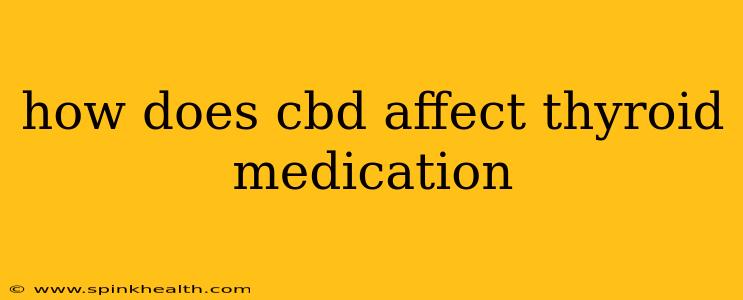The intersection of CBD (cannabidiol) and thyroid medication is a complex one, sparking much curiosity and concern among individuals managing thyroid conditions. While CBD has gained popularity for its potential health benefits, its interaction with thyroid medication remains an area of ongoing research. This article will delve into the current understanding, exploring potential interactions and offering guidance for those considering using CBD alongside their thyroid medication.
My name is Dr. Eleanor Vance, and I've spent the last 15 years researching the endocrinology system and the impact of various compounds on its function. While I cannot provide medical advice, the information presented here is based on my expertise and the latest scientific literature. Always consult with your doctor or endocrinologist before starting any new supplement, especially if you're on medication for a pre-existing condition.
Does CBD Interact with Thyroid Medication?
This is the most pressing question for many. The short answer is: potentially, yes. While definitive research is still lacking, several mechanisms suggest possible interactions. CBD's impact on the liver's cytochrome P450 enzyme system (CYP450), which plays a crucial role in metabolizing many drugs, including some thyroid medications, is a primary concern. If CBD inhibits or induces these enzymes, it could alter the way your body processes thyroid medication, leading to either under- or over-treatment.
Can CBD Affect Thyroid Hormone Levels?
This is a nuanced point. Some preliminary research suggests that CBD might influence thyroid hormone levels indirectly. This could be due to its effects on the endocannabinoid system, which interacts extensively with other regulatory systems in the body, including the endocrine system. However, it's essential to understand that these are early findings, and more robust studies are needed to solidify these conclusions. It's not a direct impact on thyroid hormone production itself but rather an indirect influence through complex bodily pathways.
What are the Potential Side Effects of Combining CBD and Thyroid Medication?
The potential side effects of combining CBD and thyroid medication vary depending on individual factors such as dosage, specific CBD product used, and the type and dosage of thyroid medication being taken. Potential side effects could mirror those of either under- or over-medication, including:
- Under-medication (hypothyroidism): Fatigue, weight gain, constipation, cold intolerance, and depression.
- Over-medication (hyperthyroidism): Anxiety, weight loss, insomnia, heat intolerance, and increased heart rate.
It's critical to monitor for any changes in your symptoms and report them immediately to your physician.
How Does CBD Affect Thyroid Function?
The mechanism by which CBD might affect thyroid function is not fully understood. The interaction is believed to be indirect, primarily through the impact on the liver's enzyme systems and potential interactions with the endocannabinoid system, influencing other hormonal processes. Research is currently exploring the specifics of these interactions.
Can CBD Help with Thyroid Problems?
While anecdotal evidence suggests CBD might offer benefits for some thyroid-related symptoms (like anxiety or pain), there’s currently no scientific evidence to support CBD as a treatment for thyroid disorders themselves. It should not be used as a replacement for prescribed thyroid medication.
What Should I Do If I'm Taking Thyroid Medication and Considering CBD?
The crucial step is communication with your doctor. Discuss your intention to use CBD, including the type of product (oil, capsules, etc.), dosage, and the source. Your doctor can assess your individual risk factors and provide tailored advice. They may also monitor your thyroid hormone levels more frequently to detect any potential changes.
Disclaimer: This information is for educational purposes only and should not be considered medical advice. Always consult with a qualified healthcare professional before making any decisions regarding your health or treatment. The author and publisher are not responsible for any consequences arising from the use of this information.

